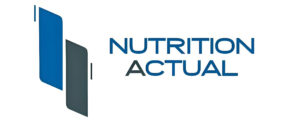As a holistic nutritionist, I recomend a wholefoods, Plant-based diet. A concern many people have is that, if they are not eating meat they will be deficient in meating their protein requirements. So here is a list of complete plant-based proteins, that are not only high in protein but also provide all 9 of the essential amino acids we must obtain from our diet.
-
Quinoa: This versatile grain is a complete protein, containing all of the essential amino acids. It can be used in a variety of dishes, such as salads, pilafs, and stir-fries.
-
Buckwheat: Despite its name, buckwheat is not a type of wheat and is actually a seed. It is a good source of protein and can be used in dishes such as pancakes, porridge, and salads.
-
Hemp seeds: These small seeds are a great source of complete protein, containing all nine essential amino acids. They can be added to smoothies, salads, and baked goods.
-
Chia seeds: Chia seeds are another good source of complete protein, and are also high in fiber and omega-3 fatty acids. They can be added to smoothies, yogurt, and baked goods.
-
Spirulina: This blue-green algae is a complete protein and is also rich in vitamins and minerals. It can be added to smoothies or taken as a supplement.
-
Soy products: Soybeans are a complete protein and soy products such as tofu and tempeh are a great way to incorporate protein into a plant-based diet.
-
Lentils: While lentils are not a complete protein on their own, when combined with whole grains such as rice or quinoa, they form a complete protein. Lentils can be used in soups, salads, and stews.
-
Seitan: Also known as wheat meat, seitan is made from wheat gluten and is a complete protein. It can be used as a meat substitute in dishes such as stir-fries and sandwiches.
-
Amaranth: This grain is a complete protein and can be used in a variety of dishes such as porridge, salads, and stews.
-
Nutritional yeast: While not a whole food, nutritional yeast is a complete protein and can be used as a seasoning or added to dishes for a cheesy flavor.

